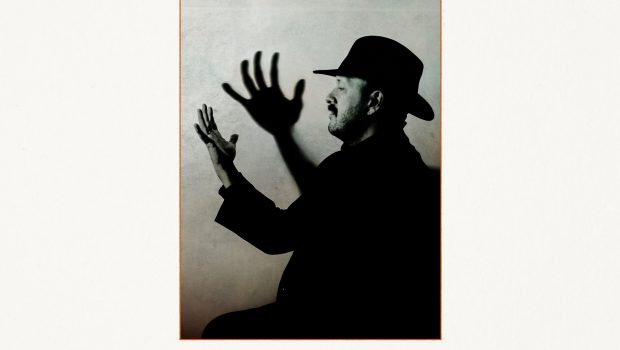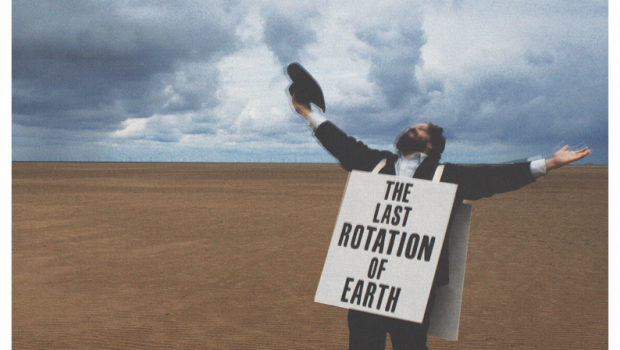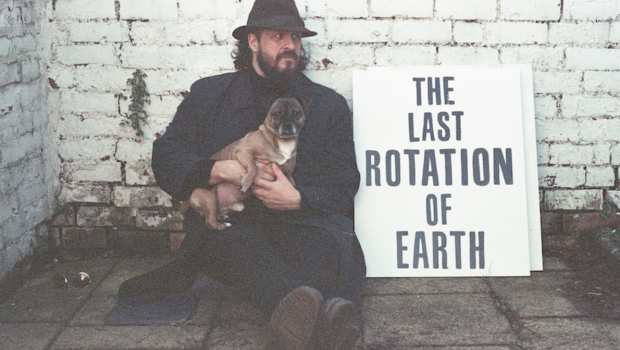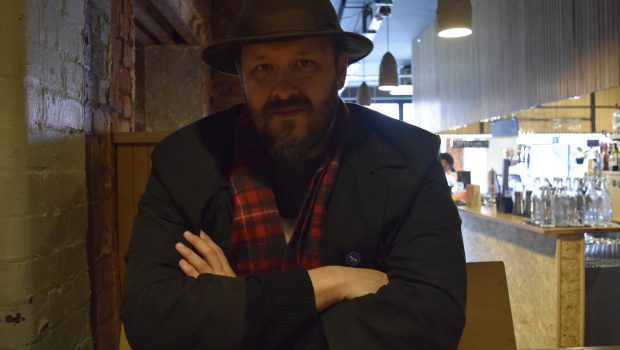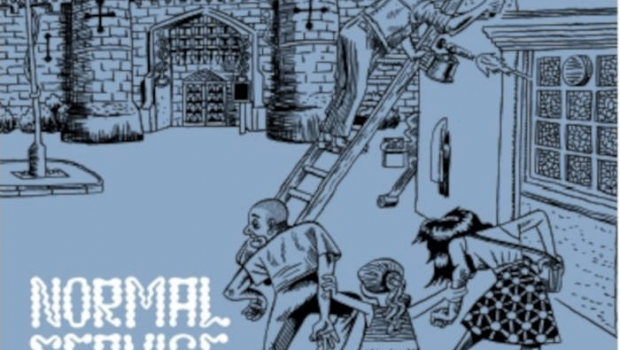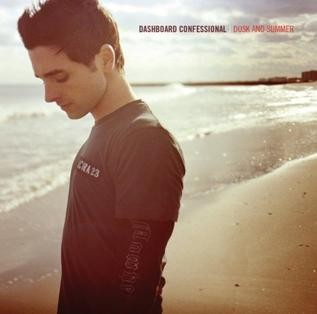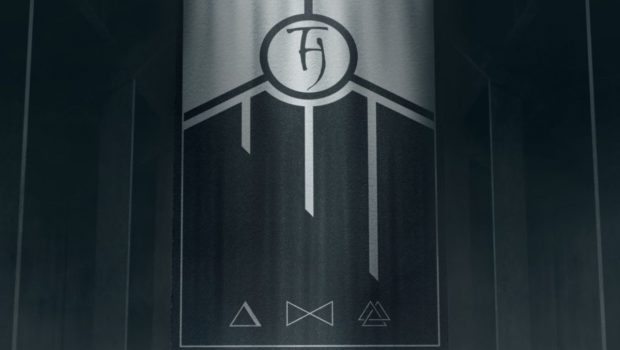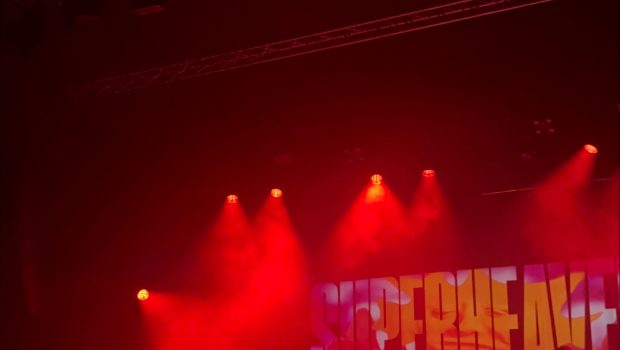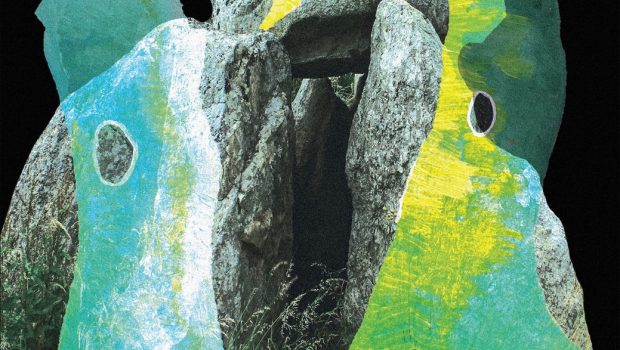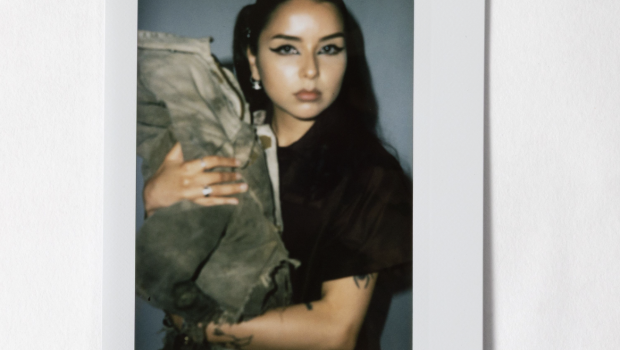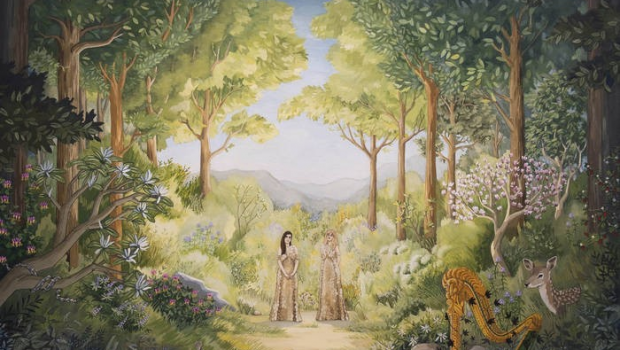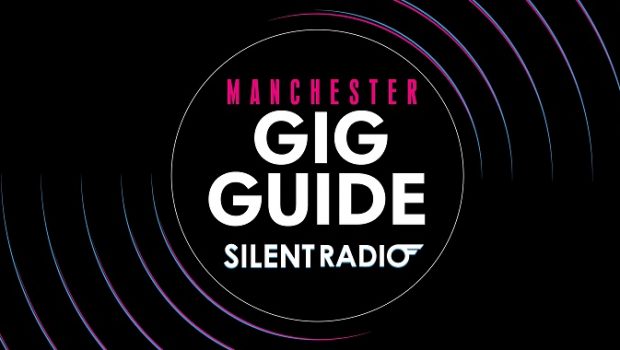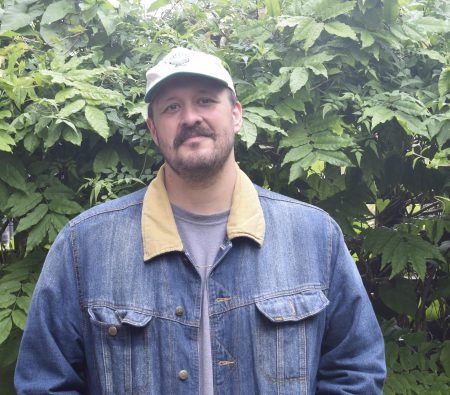 The smell of delicious fresh coffee greets my nostrils as we make ourselves comfy at the BC Camplight kitchen table. It’s been two years since we last met, before the release of the brilliant ‘Last Rotation Of Earth’, and although much has changed since then, one thing remains a reassuring constant – Brian ‘BC Camplight’ Christinzio’s uncanny ability to create timeless genre-busting tunes is as alive in 2025 as it ever was, as evidenced on his latest offering ‘A Sober Conversation’.
The smell of delicious fresh coffee greets my nostrils as we make ourselves comfy at the BC Camplight kitchen table. It’s been two years since we last met, before the release of the brilliant ‘Last Rotation Of Earth’, and although much has changed since then, one thing remains a reassuring constant – Brian ‘BC Camplight’ Christinzio’s uncanny ability to create timeless genre-busting tunes is as alive in 2025 as it ever was, as evidenced on his latest offering ‘A Sober Conversation’.
As Brian pours the coffee, we chat about how excited he is about the upcoming album and live dates which sees him play his biggest shows to date this autumn with Manchester’s Apollo and London’s Roundhouse on the schedule, more of which later. It’s all a far cry from when he left Philadelphia to begin a new life in Manchester, performing at The Castle on Oldham Street in front of just a handful of people.
Out later this month, ‘A Sober Conversation’ marks a new chapter in Brian’s life. Now drug sober for two years, the clarity that brings, both positive and negative, is what has fuelled this new record. With that new perspective on life also came reflections on the past, both good and bad and in the case of the latter, leading to Brian feeling that the time was right to confront some issues previously buried for years, and part of that process was dealing with it the best way he knew how, putting it in song. Throughout the making of the album, Brian’s dry sense of humour, clever wordplay and brilliant musicality ensure that ‘A Sober Conversation’ is another astounding addition to the Camplight oeuvre – the album never feels overburdened or heavy, rather it’s an honest reflection of where Brian finds his thoughts these days, creating a soul bearing yet accessible album of stunning songwriting. Each BC Camplight album is always much more than just a collection of songs written in the last few years, each album hangs together by some sort of narrative, whether that’s the tragedies life throws at you, just when you think you’re winning (‘Deportation Blues’ and ‘Shortly After Take Off’), or the breakup of a relationship (‘The Last Rotation of Earth’), so I began by asking Brian just how he begins to select songs to go on a particular album, or if he’s always starting from a point of the narrative with the songs fitting around it?
“Lots of people talk to me about my process, and I used to bullshit in the past, and make up something. Now I know that I don’t really have a process other than not writing until I have something to write about that I know is a linear thread, or the concept for the album. I’m not one of these people that you meet at a party with an acoustic guitar who’s like ‘hey listen to my new song’, and I don’t have like a trove of fifty songs that I pick over. I spend my time in between albums, just living, and getting to know myself, then when something strikes where I go, wow that is the reason to make an album, I start from scratch, and I go right, what do I want this to be, what do I want this to do for my own mental health, what do I want this to do for other people, and I start from there. So it’s not a matter of selecting songs that I’ve already written and putting them on a new album. Everything is from a clean slate. This one came about essentially because I’ve been off drugs for two years now, and it’s just given me this clarity. But what they don’t tell you about clarity after addiction, is that you also remember all the bad shit, so that’s kind of the focal point for this one.”
Within that new found clarity, what would you say are the highlights you’ve found when making this record and also the obstacles you’ve had to overcome?
“I think the highlights will come down the line. I don’t really buy into catharsis as much as some people. I remember when I did ‘Deportation Blues’, and there was this song about my dad, and an interviewer said, ‘oh that’s so great, you must feel so much better now’, well my dad’s still dead, it’s not really how it works! It’s kind of like therapy, so the subject matter is hopeful and forgiving but it’s very grim on this album, and the first step to me feeling better about that in my life was to talk about it, and get it out of my system. I feel really raw at the minute, knowing that the whole indie music world is about to pick through my carcass!” (laughs). “That gives me a little bit of anxiety, but I think the highlight for me will be two years from now, where hopefully I can look back on this and I can say wow, I’m proud of myself for doing that and I’m a little bit less mental now!”
I first interviewed BC Camplight five years ago, just before the release of ‘Shortly After Take Off’, where over lunchtime drinks in Common we discussed how in early 2020, despite the rumblings of some new virus, with his best reviews to date being generated, and a huge tour planned, things were looking up. Nothing could surely go wrong now could it? Cue the whole world grinding to a halt, cancelled tours, and live streamed gigs on Facebook. Fast forward to June 2025, and on reflection I ask Brian at this stage in his career and life, if he is where he wanted to be, where he thought he’d be, or has he been surprised by where life has taken him?
“Good question. I think I’m pretty much where I wanted to be, but that doesn’t mean that I’m enjoying all the rewards that I thought I’d be. I thought that if I reached a certain level of popularity or whatever, if I cracked into my own abilities to the extent that I think that I had, I thought I’d just feel this reward of like wow, I’ve finally done it. Now, I’m kind of at this point where, at the risk of sounding egotistical, I feel virtually unstoppable as a songwriter but… it’s difficult to explain… I think I thought years ago, that when I reached this point in my career that I’d be happier or be more content, and I’d be riding around on a golden bicycle or something!” (laughs) “There’s a lot of reality that has set in, in the last five years. Achieving your goals doesn’t always mean what you think it means, and you have to kind of find the silver lining, and be grateful for what you’ve achieved.”
Achievements for BC Camplight, have been over a twenty year career, yet as Brian admits, although frustrating at times, the steadier pace of gaining momentum with each release is probably easier to handle than overnight success:
“It’s been a very slow climb, which I think has been key in my ability to stick around. We all know bands that are thrown in front of your face from out of nowhere, and then they kind of shoot to the top of the mountain, and then there’s nowhere else to go but down really. I kinda started in the hole under the mountain! I can’t really think of another comparison for myself in so far as career trajectory goes, and it’s quite lonely. I’m not an overnight success, I’m not like Elbow, playing stadiums, and one of these bands that have been around forever. I can’t think of anyone else who’s been around for twenty years, and each record has done better and gained more traction, and there’s yet to be, and it’s coming, the feeling of oh right, I’m going back down now. So I kind of feel really alone in this business.”
In the age of social media, and the ever present hum of communication, the barriers, if they ever existed, between musicians and fans have virtually diminished. Nowadays, musicians can speak directly to their audiences, anytime, from anywhere in the world, yet few manage to truly connect with their fanbase in the way that Brian has. The authenticity of his songwriting and the backstories to the albums, all help to endear him to a variety of music lovers, and the conversational tone of the BC Camplight live show, carries on in the digital realm, long after the curtain has come down as Brian explains:
“Probably the biggest benefit I’ve seen from my career is seeing the effect that it’s had on people. My music, for some reason, seems to attract a few different groups of people, but one of the groups are people that maybe suffer a bit with their mental health. So, my inbox is pretty constantly flooded with people saying ‘hey I listened to this song and I just want to thank you and I feel more comfortable talking about this thing’, and I keep having to remind these people that I’m not a doctor” (laughs) “I’m not going to respond to them with ‘hey try some Vitamin D’! I try not to get freaked out about it ‘cos sometimes it feels like a lot of responsibility, because I know what it’s like to be mentally ill. I never wanted to be one of those songwriters that comes across like they have any kind of answer. I hate that kind of songwriting where it’s just like ‘don’t worry, and dry your eyes’ and all that shit, like don’t tell people what to do! The only way I can write music is just to be truthful and not to be preachy. I don’t have any answers, I think I just like to live and write as a testament to, like, I’m still here, and I’m very much a human. I’m certainly not a rockstar. I find that incredibly boring and just even thinking about being thought of in that way makes me want to be sick! I just think there’s no better way to connect to human beings, than just being a human being!”
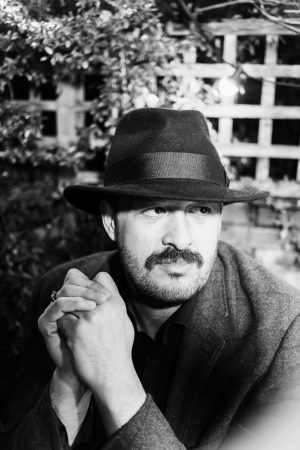 It was partly that human connection which led to the involvement of The Last Dinner Party’s Abigail Morris on the new record too, for the brilliant ‘Two Legged Dog’ as Brian reveals:
It was partly that human connection which led to the involvement of The Last Dinner Party’s Abigail Morris on the new record too, for the brilliant ‘Two Legged Dog’ as Brian reveals:
“I needed a female vocal. The record was already weeks late, because of my ADHD and stuff, I find it incredibly hard to meet deadlines. I remember when I played Glastonbury, The Last Dinner Party were big fans of BC, so they came backstage, and I was just thinking back like ‘do you think they would do it?’ I wrote to their Instagram, and they follow me, so I was like, well, they might read it. I didn’t even know their names or anything. I said ‘do you think your singer might want to sing on this song’, and in a second, she was like ‘oh my god, yes!’. I was like ‘wow!’ We did it remotely so we’ve never been in the same room, and within like twenty four hours, or forty eight hours maybe, she sent me her various takes on the song. I had just sent her the song, with just me singing the girl parts, so she did her version of it and added so much personality to the track. She was doing all the dog howls and the bow wows and all that stuff. That had nothing to do with me, that was all her, and it was brilliant! I know there is this subsect of people that have a view about that band, I mean I think they’re great, but I’ve gotten a couple of eye rolls from people on Twitter, like ‘I can’t believe you’re supporting these nepo baby kind of bands’, but like she’s insanely talented, and she sounds great on the song. I mean I get the concern about the music business in general, but that certainly doesn’t apply here. They’re super hardworking. I can tell by the way she responded to my request and just got it done. I was like ‘this is why you guys are where you are’. If you email me and ask me to sing on your track, I will say yes, and I’ll send it back to you in four years! You know what I mean? That’s the way I am, and that’s why things take me forever, so she’s got her shit together and they do as a band. I’m super proud of it, I think the track came out great.”
As life’s ups and downs have featured heavily in all of Brian’s albums, here and now, with a fresh focus on life, it must be hard to put himself back in the mindset he was in when writing some of his earlier material, yet sometimes songs can take on a slight shift in their outlook over time:
“I’ll say that there’s songs that I avoid, because I don’t want to go back into those mindsets. I get a lot of people that say ‘play Blood and Peanut Butter’ which was a song from 2005, and I know that if I start playing that song, I’m going to be unlocking so much shit that I don’t want to deal with, so, I do avoid it. Now, obviously if one of those songs was like a number one hit, I would have to, but when I can I avoid it if I’m associating it with a painful period. I play songs from ‘Last Rotation Of Earth’, which was a difficult time, as I lost my partner, she didn’t die, she just left! I think when you play these songs enough on the road, they start taking on a life of their own. Now, everything kind of feels separate from the album, but when I go back and listen to the album, if I put on a song like ‘She’s Gone Cold’ I can instantly see myself leaving the studio, with the headphones on, listening to that song and crying my eyes out. The live version of the song takes on a whole new light now, and is generally a bit more celebratory, a little bit more aggressive and fist-pumpy, and that kind of emotion doesn’t leave much space for me to be overly sad. It’s two different things really.”
Once again the musicianship on the album helps to power the whole record along, with grand orchestral arrangements, matched by a hefty dose of off-kilter indie rock, Brian’s background in classical music paving the way for him to be in control of proceedings for each new release as much as possible, which although a daunting task, is one he relishes:
“I just don’t trust other people with my music. It’s not because other people aren’t super talented, it’s because I’m not a huge fan of collabs with my kind of music. If I’m trying to write like pop bangers, then it’s fine, ‘cos the end goal is to make people dance or something like that, but these are really personal songs. They’re really, as sad as it sounds, one of the only things I have. The thought of writing these songs and then having a conductor or composer come in and sprinkle stuff all around, I kind of think, why would anybody do that? Why would you paint a picture or portrait and have somebody else come over and draw hair? I have the ability to do it, and the background to do it, so I like doing as much as I can. I can’t play the drums very well, so I have drummers come in. I have my usual guy Adam Dawson from my live band, but this album pretty heavily features Sidonie from The Orielles. She is an incredible drummer. Her and I have become close friends and we did the whole album, where there’s no click track, so there’s this real push and pull all over the album, where it just sounds like the two of us were in a room playing together, which we were.
You still have other musicians in to help with the live set obviously, otherwise you’re like a one man band with cymbals strapped to your knees!
“Yeah, not ruling it out, but go on.. “(laughs)
However I get that when it’s your own song, you know exactly how you want each song to be, so there’s a sense of contentment in doing it all yourself isn’t there?
“Yeah it’s not to say that, like, well Jolan who is in my band, the fellow that’s coming here in a bit, I’ve kind of relinquished the live music director role to him, which was a big move for me. It’s mostly because I feel like he’s a bit of a music genius and I can hand live stuff over to him and say can you please teach this person and this person the parts and he’s on it. He came into the studio and gave a couple of ideas that I said ‘hmm, that’s a good idea’ he said ‘can I do a guitar solo on the end of ‘Where Are You Taking My Baby’ and my first thought was like, absolutely fucking not! “(laughs). “But then he did this really weird kind of thing at the end and it ended up on the record. So there was a little bit of giving in. You have to kind of work a while to get in my inner sanctum before I trust you to put stuff on my painting!”
The album was recorded once again at Whitewood Studios in Liverpool. What in the beginning was a cost influenced decision, has since become the perfect home for a BC recording session, his last four albums have all been made there, with producer Daniel Woodward an ever important presence in the studio:
“I went there originally because it was cheap in 2017, and struck up this relationship with Daniel Woodward who is one of the owners of the studio, and he’s the engineer. First off we get along, I love the guy, we’re friends, we butt heads all the time and I love that kind of push and pull I have with him. It’s mostly to do with sonics like ‘hey Danny would you please turn the snare drum down’ and him going ’don’t you want people to dance’ and me going ‘Noooooooooo!’ (laughs) That fight somehow means it always ends up sounding where it should be. So, it started off a monetary thing, but now I know that if I go anywhere else it’s going to be like, you’ve got two weeks, three weeks, go in there make a record, and it’s kind of unfamiliar territory, the thought of starting over that way just kind of scares me. I go to Whitewood, we kind of lock ourselves together in this dark room, and if I’m feeling overwhelmed one day, and it’s maybe a Thursday night say, and I say ‘Danny I’m not coming in tomorrow’, he’ll say ok, or if I say ‘hey man let’s work from morning until the next day’, he’ll say ok. There’s this trust, and this leniency and this flexibility that I’m not going to get anywhere else, and he’s become one of my best friends now. He’s a big part of BC Camplight, and I hope people talk about him more. It wouldn’t exist now if it wasn’t for him.”
Having lived in Manchester now for over ten years, Brian must have seen and experienced the cities ever evolving music scene going through changes, however as he admits, although he is great friends with many of these involved, he was never really fully immersed in Manchester’s musical community:
“Unfortunately, I’ve never been a part of the music scene, I was always the weirdo! I was never really making music like anyone else, which is I think another of the reasons why I’ve been able to stick around. When I first came here, it was really psych heavy, everyone was into doom psych, and every band that I hung around with was just making flat out psychedelic music, and I was like ‘hey, you wanna listen to this kind of Burt Bacharach song I got here?’ so I’ve always been kind of on the outskirts there, but the people that were making this music were just lovely people. A lot of them took to me quite quickly. Literally the first place I set my bags down off the plane, was The Castle Hotel, on Oldham Street and met a group of people in there that I just fell in love with, and that kind of became a home base for a few years. The first gig I played here was at The Castle Hotel. This local promoter, Chris Horkan from Hey Manchester, took a chance on me, I can’t even remember how we started working together, and he said ‘do you want to do this gig at The Castle?’ There was maybe forty people there. It definitely wasn’t the Pyramid Stage at Glastonbury put it that way. It was just kind of fun. Then a bit of a buzz started happening and he said well, why don’t you do The Deaf Institute for the next show, and I remember on the morning of the Deaf Institute, which only holds like three hundred people or something, I had this like pit in my stomach feeling like I was about to play a stadium. People showed up, it was like two thirds full! I was like ‘wow, what’s going on here!’ Then I started releasing records and now the very same promoter, ‘cos I always said to him back then ‘if you take a chance on me now, I’m not going to leave, you’ll have to kick me off the roster’, cos I enjoy being faithful that way, that very same promotional company, is now promoting my show at The Apollo, which is just crazy!
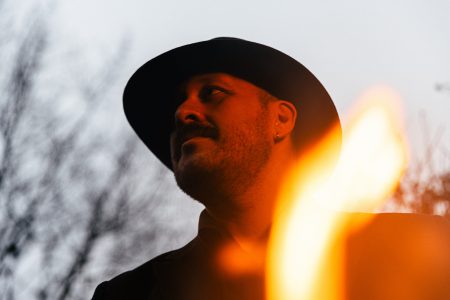 As well as that Apollo show in Manchester, you’ve also got The Roundhouse in London later this year as part of your tour. These are the biggest shows to date, so how do you prepare mentally, and emotionally as well as musically, for such big gigs?
As well as that Apollo show in Manchester, you’ve also got The Roundhouse in London later this year as part of your tour. These are the biggest shows to date, so how do you prepare mentally, and emotionally as well as musically, for such big gigs?
“I’ve played The Roundhouse before, but that was as a support slot and my piano collapsed during the first song, so this is a bit of a redemption! It’s a tough one, because at this point, you can’t really play these kind of shows and have it be ,’hey the band’s here, we’re gonna play these things’, there has to be a visual aspect to it, there’s got to be lighting directors involved, and that’s so far outside of my wheelhouse. So I worry about that because I want people to come to my shows and be like that’s the best thing we’ve ever seen, and also I will never mail it in with performances, the moment I stop worrying, is the moment I’m going to retire. I try to be as prepared as I could be. My partner Jessica, who is the lead singer in the band Peaness, she goes over stuff with me daily and is almost as obsessed as I am. She’ll go ‘well what do you think about during this song we’ll have this come out, and then what if a giant hand came down over the crowd’ and all this stuff’. I’m like, we don’t have that much money!” (laughs)
Some musicians find touring hard, the only highlight being that short space of time delivering your live set to the crowd, whereas others thrive in that touring experience. For Brian, life on the road is never dull…
“This is going to t sound stupid but on the road is the only time that I feel good. I feel mentally fine, I don’t need any tricks or potions or any kind of distractions to keep me going. With my newly diagnosed ADHD, I know that unless I have a routine that I’m forced to do, my brain wanders. Also it’s not great at directions, so daily life can be quite a struggle. When I’m on the road, first of all I love just having breakfast with the band. That’s almost as fun for me as the shows. I love getting out of the hotel room and being like in Scunthorpe, and going to some diner and just being there with the guys and girls in the band, that’s what I really look forward to. I love the fact that somebody tells me to get back on the bus, that sound check is at four, and then I know exactly when everything is going to happen. I don’t really have time to worry about anything. I get done with the show, I’m exhausted, and then I wake up and I go ‘breakfast again!’ To this point, I feel most energised on the road. When I’m not, is when I need to find ways of occupying my brain.”
With the new album out in a few weeks, plus both solo live dates and a full band tour on the horizon, we end our catch up with Brian explaining what he’s looking forward to in the immediate future
“The money!” (laughs). “No, I love that I’ve been afforded this very rare opportunity to do this professionally and now that I feel like I’ve broken through to this next layer or level of songwriting myself, I can’t wait to just see where things go. I feel like a bit of a passenger or a witness as much as anybody else sometimes. I don’t really have a process where I go, ok I’m going to sit at the piano now and I’m going to try this. Lots of times I feel like I black out and I wake up with a bag of crisps on my belly and there’s a song there, I’m like ‘ooh cool!’. So I’m looking forward to where my writing takes me, looking forward to playing these really big shows and hopefully winning a Mercury!” (laughs).
BC Camplight’s musical journey has taken him from Philadelphia, where members of The War On Drugs were his backing band, to the leafy suburbs of Manchester, battling personal upheavals, and numerous obstacles along the way. Each previous album release felt like a triumph over tragedy, and only emboldened his resolve to continue making music with a genre defying, authentic approach. With 2023’s ‘The Last Rotation Of Earth’ and upcoming release ‘A Sober Conversation’ it feels like that cycle has been broken, and with his biggest gigs to date on the horizon, could it be that things have finally turned around for him “you never know “he says knocking on the wooden shelving next to the kitchen table. With bandmate Jolan on the way round to practice ahead of the upcoming BBC6Music session, and his most open and honest album yet about to be released, it seems that things are looking up at Camplight towers.
‘A Sober Conversation’ brings the brilliance of BC Camplight forward once more. It’s an album that will make you laugh and cry, sometimes all in the space of one verse, its melodies soaring skywards one minute and delicately creeping into your eardrums the next. A unique songwriting talent, the creativity of Christinzio has triumphed again.
BC Camplight: A Sober Conversation – Out 27th June 2025 (Bella Union)
BC Camplight Tour:
Saturday 5th July – York – Museum Gardens
Sunday 3rd August – Edinburgh – La Belle Angele
Saturday 30th August – Birmingham – Moseley Folk Festival
Friday 12th September – Lille – Aéronef (solo)
Saturday 13th September – Paris – Le Point Ephemere (solo)
Sunday 14th September – Antwerp – Venue TBC (solo)
Tuesday 16th September – Germany, Jena – TRAFO (solo)
Wednesday 17th September – Germany, Berlin – Kantine am Berghain (solo)
Thursday 18th September – Germany, Hamburg – Reeperbahn Festival (solo)
Friday 19th September – Denmark, Copenhagen – Hotel Cecil (solo)
Sunday 21st September – Germany, Cologne – Jaki (solo)
Monday 22nd September – The Netherlands, Amsterdam – Paradiso (solo)
Thursday 30th October – Bristol – SWX
Saturday 1st November – Leeds – Project House
Tuesday 4th November – Norwich – Norwich Arts Centre
Wednesday 5th November – London – Roundhouse
Thursday 6th November – Cardiff – Tramshed
Friday 7th November – Exeter – Phoenix
Saturday 8th November – Southampton – The 1865
Wednesday 12th November – Newcastle – Boiler Shop
Thursday 13th November – Glasgow – Queen Margaret Union
Friday 14th November – Manchester – O2 Apollo
Sunday 16th November – Nottingham – Rock City
Tuesday 18th November – Dublin – Button Factory
Wednesday 19th November – Belfast – Mandela Hall
Thursday 20th November – Galway – Roisin Duhb
Friday 21st November – Limerick City – Dolan’s
Photo 1: BC Camplight, Manchester, June 2025 – Photo Credit: Paula Farr
Photo 2: Photo Credit: Marieke Macklon
Photo 3: Photo Credit: Marieke Macklon
